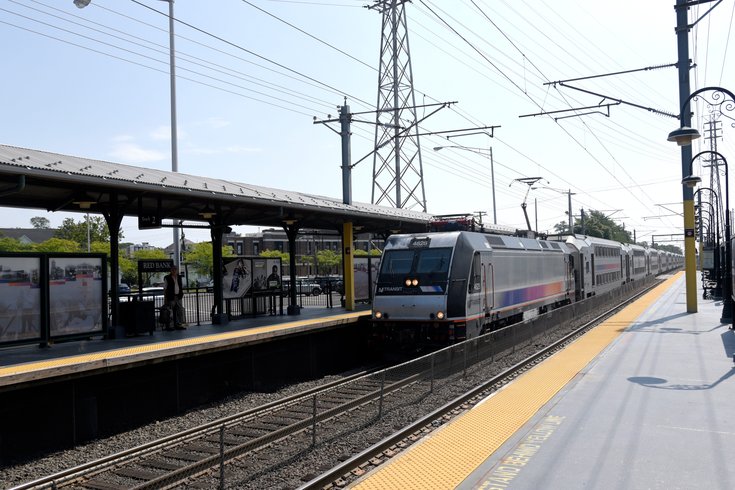
April 16, 2025
 Olivia Liu/USA TODAY NETWORK
Olivia Liu/USA TODAY NETWORK
NJ Transit locomotive engineers rejected a contract offer, with 87% voting against the deal. If a new agreement isn't reached by May 15, the union can strike.
NJ Transit locomotive engineers have rejected a tentative deal in a dispute over wages, setting the stage for a possible strike next month.
Members of the Brotherhood of Locomotive Engineers and Trainmen voted overwhelmingly against the offer, with 87% of the 427 engineers who cast votes in opposition. Bargaining teams for the union and management had signed a tentative deal March 6, but it required ratification by union members and approval by NJ Transit’s board.
By nixing the deal, the engineers set the clock ticking for “self-help,” under which they could strike under the rules of the Railway Labor Act or NJ Transit could lock out workers. Self-help could begin on May 15. The monthlong delay is meant to allow time for further negotiations.
James Louis, the union’s vice president, said both sides will return to the bargaining table to try to resolve their differences. Engineers already have authorized the union to call a strike if a voluntary settlement isn’t reached.
“We want to have uninterrupted rail service for all who depend on it, but we also want to reach a fair agreement for engineers,” Louis said in a statement. “If we fail to reach an agreement in the next month, we’re prepared to strike.”
Kris Kolluri, the agency’s president and CEO, said he was disappointed by the vote but still hopes to reach a deal.
“I am committed to returning to the bargaining table immediately and meeting every day, for as long as it takes, to get it done,” Kolluri said in a statement.
News of the union’s rejection of the deal came hours after Gov. Phil Murphy said Amtrak and NJ Transit were making repairs that would avert another summer of service delays and cancelations.
When the two sides reached the tentative deal last month, Kolluri and BLET general chairman Thomas Haas said it reflected “NJ Transit’s commitment to fairness, efficiency, innovation, and long-term financial sustainability.”
Haas said this week that NJ Transit’s locomotive engineers have not had a raise since 2019. Sagging salaries have prompted some engineers to leave NJ Transit for nearby railroads with higher wages, union officials said.
“We earn less than our peers at other commuter railroads that share the same platforms,” Haas said in a statement. “For years, we have faced managers who prioritized spending on pet projects including a half-billion dollars for a corporate headquarters with penthouse views, but those same managers couldn’t find an extra dime for their train crews.”
Staffing shortages during the Christie administration contributed to service delays and cancellations, and union officials warned that could happen again.
“Between retirements and those leaving for greener pastures elsewhere, NJ Transit is facing a repeat of the previous engineer shortage, compounded by an inability to recruit new engineers due to substandard wages,” Haas said.
The last railroad strike against NJ Transit was in 1983, according to the union. The agency narrowly avoided a strike in 2016, when contract negotiations settled mere hours before the strike deadline.
NJ Transit is the nation’s third-largest commuter railroad, with 195,000 passengers on an average weekday, according to the union.
New Jersey Monitor is part of States Newsroom, a nonprofit news network supported by grants and a coalition of donors as a 501c(3) public charity. New Jersey Monitor maintains editorial independence. Contact Editor Terrence T. McDonald for questions: info@newjerseymonitor.com.